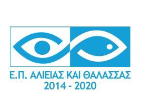Markos Antonios Foskolos: 'Fortounatos'
Fortunatos (‘lucky’) by Markos Antonios Foskolos is one of the three surviving comedies of the Cretan Renaissance theatre (the other two are Katsourbos by G.Hortatsis and Stathis), and is perhaps the most “theatrical” of all because of its descriptive means, the comic characters, and its direct way of expression. It is written in the eastern Cretan dialect of the time, during the period that Turks besieged the Venetian city of Candia-Kastro. It comes down to us through the manuscript of the poet himself, which is dated around 1655. We have a lot of biographical information about Markantonios Foskolos, thanks to the tireless research of the main researcher of his work, Mr. Alfred Vincent.
Pulcinella
Although Giovanni Battista Pergolesi’s skill as a composer of sacred music was remarked while still a student in Naples, the young man’s farrest reaching influence would soon make itself felt in the world of the theatre. After a particularly catastrophic earthquake devastated Naples Pergolese vowed to return to the world of sacred music and created his Stabat Mater, the most often printed score of the 18th
century.
In far off Paris his comic operas inspired quarrels, le Querelle des Bouffons- which pitted fans of Italian opera buffo against the aficionados of the serious French works of Lully and Rameau.
Pulcinella and Pergolese: two of Naples favorite sons were forever linked when Igor Stravinsky penned his ballet in 1920. Noisy, impolite and oh! So politically incorrect the puppet Pulcinella has delighted audiences the world over The antics of Pulcinella and the hauntingly melodic sonorities of Pergolesi breathe new life into the age-old Commedia dell’Arte!










































